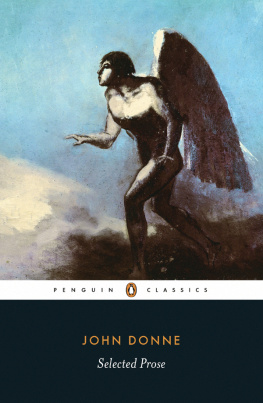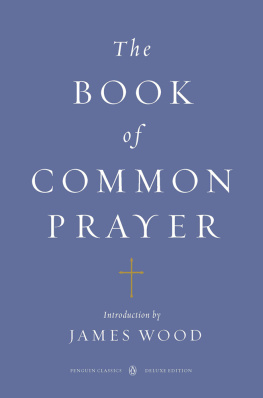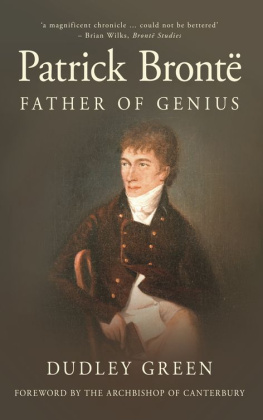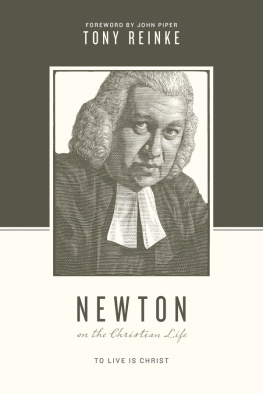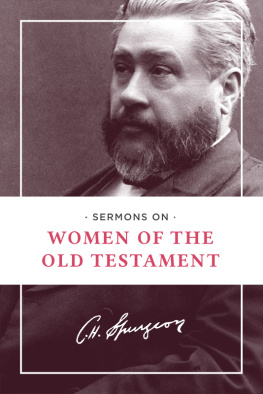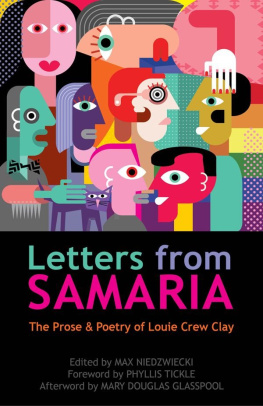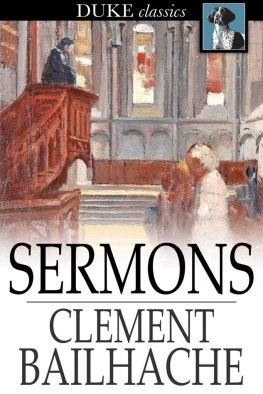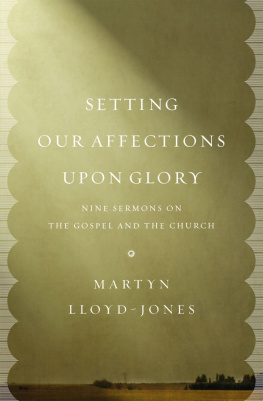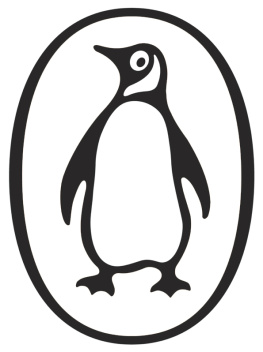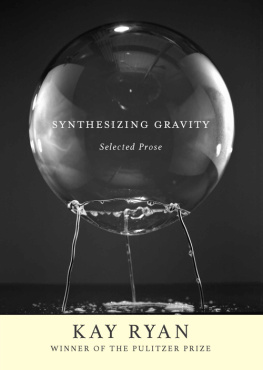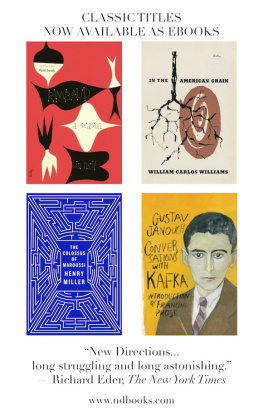Church of England - Selected Prose
Here you can read online Church of England - Selected Prose full text of the book (entire story) in english for free. Download pdf and epub, get meaning, cover and reviews about this ebook. City: England, year: 2015, publisher: Penguin Books Ltd;Penguin Classics, genre: Science. Description of the work, (preface) as well as reviews are available. Best literature library LitArk.com created for fans of good reading and offers a wide selection of genres:
Romance novel
Science fiction
Adventure
Detective
Science
History
Home and family
Prose
Art
Politics
Computer
Non-fiction
Religion
Business
Children
Humor
Choose a favorite category and find really read worthwhile books. Enjoy immersion in the world of imagination, feel the emotions of the characters or learn something new for yourself, make an fascinating discovery.
- Book:Selected Prose
- Author:
- Publisher:Penguin Books Ltd;Penguin Classics
- Genre:
- Year:2015
- City:England
- Rating:4 / 5
- Favourites:Add to favourites
- Your mark:
- 80
- 1
- 2
- 3
- 4
- 5
Selected Prose: summary, description and annotation
We offer to read an annotation, description, summary or preface (depends on what the author of the book "Selected Prose" wrote himself). If you haven't found the necessary information about the book — write in the comments, we will try to find it.
Selected Prose — read online for free the complete book (whole text) full work
Below is the text of the book, divided by pages. System saving the place of the last page read, allows you to conveniently read the book "Selected Prose" online for free, without having to search again every time where you left off. Put a bookmark, and you can go to the page where you finished reading at any time.
Font size:
Interval:
Bookmark:


NEIL RHODES

UK | USA | Canada | Ireland | Australia
India | New Zealand | South Africa
Penguin Books is part of the Penguin Random House group of companies whose addresses can be found at global.penguinrandomhouse.com.

This edition first published in Penguin Classics 1987
Reprinted in Penguin Classics 2015
Introduction and Notes copyright Neil Rhodes, 1987
All rights reserved
Cover: detail from The Winged Man or, Fallen Angel, before 1880 (oil on cardboard), Redon, Odilon (18401916)/Muse des Beaux-Arts, Bordeaux, France/Bridgeman Images
ISBN: 978-0-241-20620-1
PENGUIN  CLASSICS
CLASSICS
JOHN DONNE was born into a Catholic family in 1572. After a conventional education at Hart Hall, Oxford, and Lincolns Inn, he took part in the Earl of Essexs expedition to the Azores in 1597. He secretly married Anne More in December 1601, and was imprisoned by her father, Sir George, in the Fleet two months later. He was ordained priest in January 1615, and proceeded to a Doctorate of Divinity at Cambridge in April of that year. In 1621 he was made Dean of St Pauls in London, a post that he held until his death in 1631. He is famous for the sermons he preached in his later years as well as for his poems.
NEIL RHODES is Professor of English at the University of St Andrews and Visiting Professor at the University of Granada. His publications include English Renaissance Translation Theory (2013), Shakespeare and the Origins of English (2004) and (with Jonathan Sawday) The Renaissance Computer: Knowledge Technology in the First Age of Print (2000). He is also co-General Editor (with Andrew Hadfield) of the MHRA Tudor and Stuart Translations.

Let the conversation begin...
Follow the Penguin Twitter.com@penguinukbooks
Keep up-to-date with all our stories YouTube.com/penguinbooks
Pin Penguin Books to your Pinterest
Like Penguin Books on Facebook.com/penguinbooks
Listen to Penguin at SoundCloud.com/penguin-books
Find out more about the author and
discover more stories like this at Penguin.co.uk
Donne expected to be remembered as a great preacher rather than a great poet, and one of the aims of this book is to show why. Another is to enlarge the very partial image of Donne which is formed by an isolated reading of the Songs and Sonnets to enlarge it not by pointing to a different, drabber Donne, but by illustrating the considerable imaginative and intellectual continuity in his writing as a whole. Paradoxes and Problems was the title given to his earliest prose works, and it is one which could serve equally well for his poetry: it would embrace not only the engagingly flimsy argumentation of The Flea, but also the delicate probing of loves mysteries in Air and Angels and The Ecstasy or the extravagant bleakness of A Nocturnal upon S. Lucys Day. Paradox and problem form the knotty fabric of Biathanatos, as Donne ponders whether suicide can ever be justified; it is through paradox and problem that he explores the relationship between the self and the world in the moving account of his near-fatal illness, Devotions; and paradox and problem permeate the Sermons, emerging in such typical expressions of wonderment as that the angels are the Riddles of Heaven.
The Paradoxes themselves were probably composed in the early 1590s when Donne was a law student, so they are roughly contemporary with the Elegies, Satires and the earliest of the Songs and Sonnets. (The Problems were written between 1603 and 1610, the dead period of his career.) Donne himself described them in a letter as swaggerers and pretyly guilt, as if to acknowledge the bluster and showiness of some of these pieces. Certainly the Paradoxes are highly volatile compositions, and the reader is frequently sprayed with arguments which have little overall consistency and which are sometimes based on no more than verbal sleight of hand; as in A Defence of Womens Inconstancy, where he claims, I would you had your Mistresses so constant that they would never change, no not so much as their Smocks, then should you see what a sluttish virtue Constancy were. But even his most flippant offerings can be attractively sharp; on the virtue of cosmetics, for instance, he points out that If in kissing or breathing upon her, the painting fall off, thou art angry: wilt thou be so, if it stick on? As far as women were concerned, the swagger of the Paradoxes becomes more menacing in the Problems, which are generally gloomier than the earlier pieces, and we are invited to consider whether females even have souls; after all, they have the edge on the apes only because they can speak. The absurdity of this proposition was sternly rebuked by Donne himself in a late sermon (51), and it would indeed be absurd to suppose that the Paradoxes and Problems represent what he actually believed about the subjects he investigates. But as so often in the love poetry, flippancy and seriousness mingle, and some of his subjects are ones with which he was profoundly concerned. The argument that the gifts of the body are better than those of the mind, for example, is not so much an exercise in cynical materialism as an honest affirmation of the sensitivity of our physical faculties, mixed with regret for the helplessness of the soul: But alas my Soule cannot make any part, that is not of it selfe disposed, to see or heare. The first part of this Paradox seems genuinely troubled, and its theme was to reappear in his religious prose. Similarly, the contradictory arguments of Paradoxes 1 and 5, that all things kill themselves, and that only cowards dare die, suggest a real conflict about the legitimacy of killing oneself which he was later to explore in Biathanatos.
Conflict is the essence of the Paradoxes, whether within Donne himself or between Donne and the reader. Wit is dynamic, he asserts, and discord creative: While I feele the contrary repugnances and adverse fightings of the Elements in my body, my body increaseth; and whilst I differ from common opinions, by this discord the number of my Paradoxes encreaseth. The connection he makes might seem arbitrary, but it is entirely characteristic of Donne that he should associate his sense of internal, physical conflict with an intellectual position of sceptical antagonism. It is this last quality which he identifies in his letter about the Paradoxes; their object, he says, is to make the reader find better reasons against them and in themselves they are nothings. In this respect the Paradoxes are what the critic Stanley Fish has called self-consuming artifacts (a term which he in fact applies to Donnes sermons); that is to say, they are dialectical works whose meaning is not intrinsic, but is generated by their argumentative relationship with the reader. How seriously we should take them, then, is a question of how serious we make them.
Font size:
Interval:
Bookmark:
Similar books «Selected Prose»
Look at similar books to Selected Prose. We have selected literature similar in name and meaning in the hope of providing readers with more options to find new, interesting, not yet read works.
Discussion, reviews of the book Selected Prose and just readers' own opinions. Leave your comments, write what you think about the work, its meaning or the main characters. Specify what exactly you liked and what you didn't like, and why you think so.

